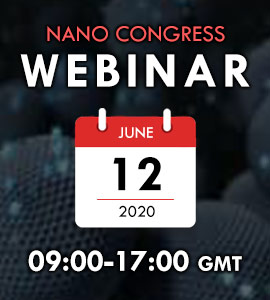
Nancy Healy
Georgia Institute of Technology, USA
Title: The national nanotechnology coordinated infrastructure and its role in meeting the workforce nanotechnology demands in the US
Biography
Biography: Nancy Healy
Abstract
The United States has invested heavily in nanoscale science and engineering over the last 20 years. In 2001, the National Nanotechnology Initiative (NNI) was established and was reauthorized in 2003 by the 21st Century Nanotechnology Research and Development Act. Over this period, the US has
supported Nanotechnology R&D and education with $29 billion in support. As part of the nano R&D, the National Science Foundation established nationwide user facilities beginning in 1997 the the National Nanotechnology User Network (NNUN) and which is represented by the 16 site National Nanotechnology Coordinated Infrastructure (NNCI). In addition to supporting nanoscale research, these user facilities have also developed numerous education programs to help address the NNI’s Strategic Plan Goal #3: Develop and sustain educational resources, a skilled workforce, and a dynamic infrastructure. This presentation will discuss strategies that have been successful in developing a workforce pipeline from K through gray under the NSF-funded user facilities, especially those of NNCI. No discussion of nanotechnology education and workforce development would be complete without reference to the National Science Foundation funding of numerous nanotechnology education programs focusing on developing a nano-enabled workforce and an educated public that supports the safe development of nanotechnologies. This presentation will present examples of successful programs that have had nationwide impact not just under the NNUN - NNCI continuum but also other programs such as the Nanotechnology Applications and Career Knowledge program at Pennsylvania State University and the now sun-setted Nanoscale Informal Science Education Network.

